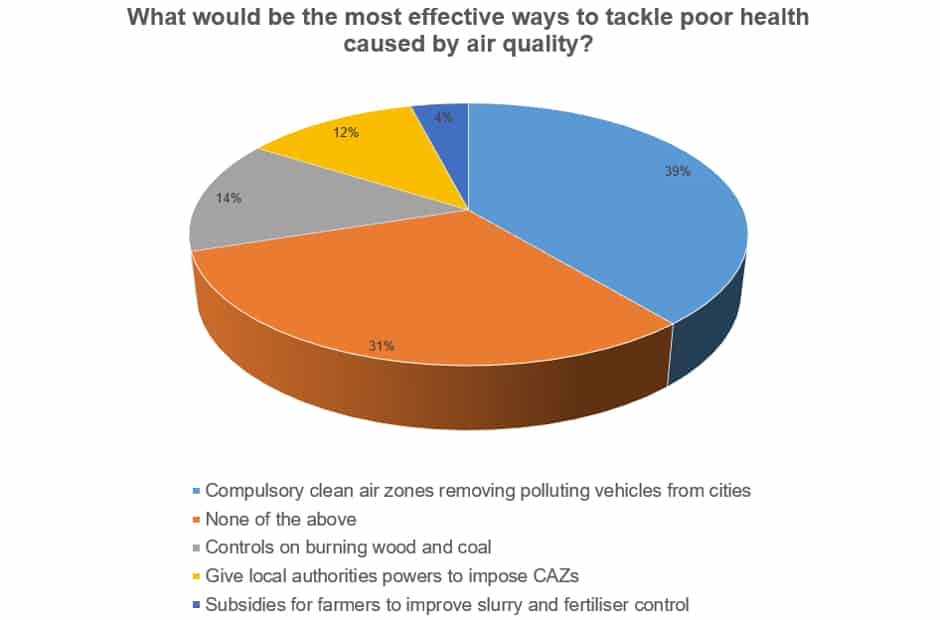Last week’s poll: the government’s new Clean Air Strategy
What would be the most effective way of tackling poor health caused by air quality?

Last week’s poll was predicated by environment secretary Michael Gove’s Clean Air Strategy, which is consulting on a raft of measures to ‘cut air pollution and save lives’.
Pollutants targeted in the strategy include particulates from burning wood and coal in homes, emissions from farms in the form of ammonia from manure and fertilisers, and dust from vehicle tyres and brakes.
Among the details announced by Gove were extra investment in scientific research and innovation for clean air technology and reduction of emissions of toxic pollutants, such as oxides of nitrogen and particulates.
Other details include legislation to ensure that only “the cleanest domestic fuels” would be on sale. This might include controls on selling wet wood for domestic log burners.

Of the 345 respondents, 39 per cent thought the best option would be compulsory clean air zones (CAZ) that remove polluting vehicles from cities, followed 14 per cent who opted for controls on burning wood and coal. A total of 12 per cent thought that local authorities should be given powers to impose CAZs, and four per cent thought farmers should receive subsidies to improve slurry and fertiliser control. Just under a third – 31 per cent – went for the 'none of the above' option.
Register now to continue reading
Thanks for visiting The Engineer. You’ve now reached your monthly limit of news stories. Register for free to unlock unlimited access to all of our news coverage, as well as premium content including opinion, in-depth features and special reports.
Benefits of registering
-
In-depth insights and coverage of key emerging trends
-
Unrestricted access to special reports throughout the year
-
Daily technology news delivered straight to your inbox










Water Sector Talent Exodus Could Cripple The Sector
Maybe if things are essential for the running of a country and we want to pay a fair price we should be running these utilities on a not for profit...